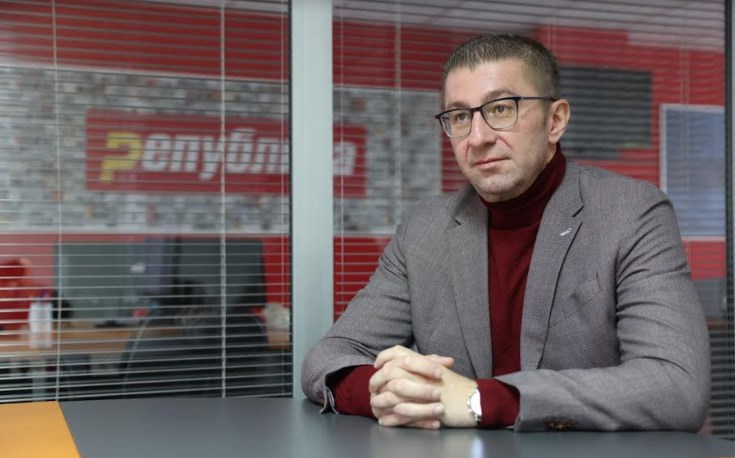There will be no constitutional changes in this composition of the parliament because this composition of parliament will not work under a conditionally speaking Bulgarian dictate, the agreement was negotiated despite the fact that we offered help in that negotiation process. If you remember after that press conference of mine, I think it was April-May; I was rejected by the DUI government, supported by SDSM, with the excuse that they don’t need help. They negotiated and agreed on an annex to the friendship and good-neighborhood agreement, but they cannot fulfill what they agreed on because it is obvious that those conditions that were valid in the past will not be valid and will not be fulfilled in this parliament. It is clear to Kovacevski, it is clear to Ali Ahmeti, it is clear to everyone.
We did not run in the elections to promise constitutional changes to the citizens. I will repeat that we warned them not to sign it, not to enter into an adventure and not to impose additional conditions on citizens so that this country can start negotiations with EU membership, said the leader of VMRO-DPMNE, Hristijan Mickoski, when asked to comment on the statement of Kovacevski, who indicates that constitutional changes will take place.
Mickoski also made a retrospective of Macedonia from its very independence until today.
I will remind you that when this country was becoming independent and when it separated from former Yugoslavia, the French expert on constitutional law was clear and loud at that time, Mr. Badinter, that it was the only one of the former Yugoslav republics that met the conditions according to the criteria to become an independent country, neither Slovenia nor Croatia fulfilled it at that time. Then we were obstructed by our southern neighbor and we were pressured to change our flag then and accept this new flag, thus making a big national concession for that better future, for that European future, for European standards.
Then we were also blackmailed and pressured to be part of the United Nations, so we had to accept that temporary reference that we used at that time to become a member country of the United Nations. In 1999, we were a logistics base, I will repeat a logistics base of the NATO Alliance, which at that time was dealing with the Milosevic regime, and we took in more than half a million refugees from Kosovo.
In 2000, we signed the Association and Stabilization Agreement with the EU, so that in 2001, those who we housed turned their weapons against us and the military conflict happened in 2001, and as a result of that military conflict in 2001, the Framework Agreement happened. Again we had to make additional national concessions for a better future, for a European future and we accepted that.
In 2005, unfortunately, we were a victim, that is, we received the status of a candidate for a member state of the EU, and in 2008, unfortunately, we were a victim of a veto by our southern neighbor when we did not become a NATO member state at the Summit in Bucharest, while Albania and Croatia became, despite the fact that we were convinced by the great friend of Macedonia, the president of the US at that time, Mr. Bush. In 2009, we received the first report from the EU, EC, for the start of negotiations, positive, but unfortunately, due to the veto from our southern neighbor, we did not start them again.
After those shameful events in the parliament, the Constitution was changed, the constitutional name was changed, despite the fact that we received a ruling in The Hague that Greece should not obstruct us from membership in international organizations. We signed an agreement on good neighborliness with our eastern neighbor and we did it all to the detriment of Macedonian national interests, so that today nobody guarantees anything to this nation, said Mickoski.
He said that no politician in Macedonia should think about any national concessions related to any constitutional changes in Macedonia.
None of those bureaucrats in Brussels came forward and this nation is guaranteed neither identity, nor uniqueness, nor tradition, nor history, nor language, nothing. And again they force us to make national concessions without additional guarantees, without clear guarantees. No living politician in Macedonia should think about any national concessions that are related to any constitutional changes in Macedonia, Mickoski added.






Comments are closed for this post.